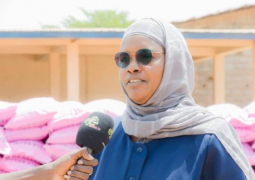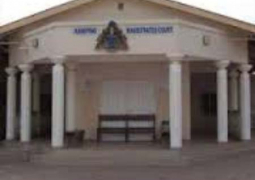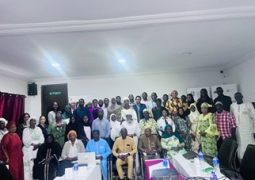As part of his familiarisation tour of various Departments and Projects under his ministry, the newly appointed minister visited the Gambia Livestock Marketing Agency (GLMA) and the Department of Livestock Services on Monday, 23rd May 2022.
According to the Agric. Minister, GLMA, and the Department of Livestock Services are very essential components of the Ministry of Agriculture.
“We are talking about the hunger-free Gambia, it is one thing to be very conscious of, and the carbohydrate need of the country which is rice production will be well-nourished if our protein resources are not depending on foreign soils.
Hon. Dr. Sabally reiterated for all the line departments and units under MoA to work as a team in order to accomplish a common goal. “I urge every one of us to collaborate in what we do, to complement each other’s effort at the farmer level,” he said.
Dr. Demba B. Jallow, DG, GLMA, elaborated on the key function of GLMA, which according to him, was to establish and manage livestock markets and construct a lease licence livestock butchered shops and cases.
He added that they also determine the price of meat tariffs through consultative forums with dealers, butchers, stakeholders, securities, and local government authorities, for sustainability and realism.
Part of their functions is to also collect fees from dealer permits paid to the consultation fund and collect cattle tax, ‘which we recycle back to the farmer in the form of training, inputs, vaccination, etc.’
He explained that the monthly subvention of the agency is usually limited; in effect, they may not be able to rehabilitate slaughterhouses or butcher shops.
“We also face difficulty in registration and ensuring compliance, butchers barely pay their registration fee while farmers do not want to pay their cattle tax,” he said.
According to the DG, seasonal fluctuation in the price of animals is also a challenge since 70% of the animals that are slaughtered in butcher houses are being imported from neighbouring countries which makes it difficult for them to have a reliable supply of animals here especially when the dealers are very poor financially.
The CPCU Coordinator Abdoulie Touray, informed the gathering that the poor financial status of the dealers is being addressed with a grant by the Small Ruminant project; “they are being supported to obtain cash to run the business.”




